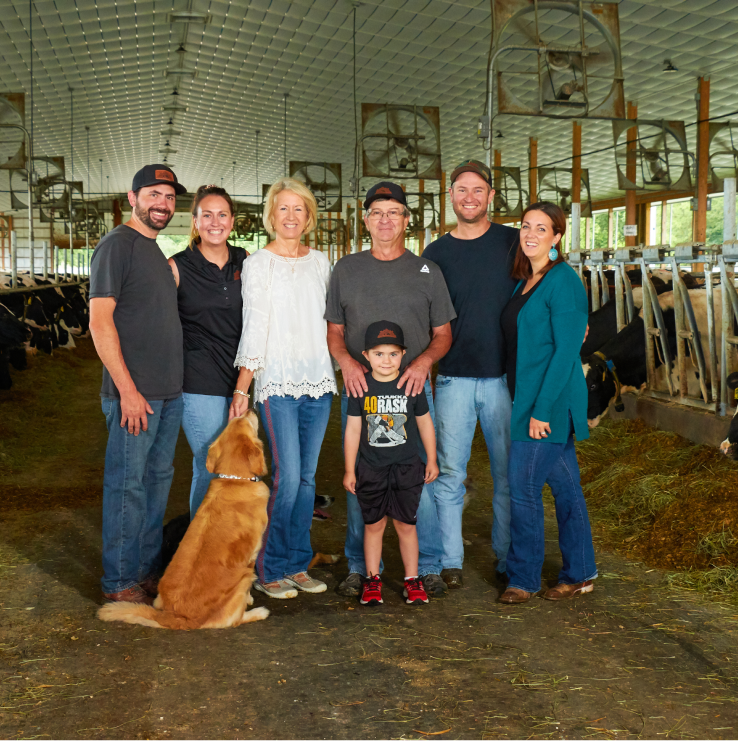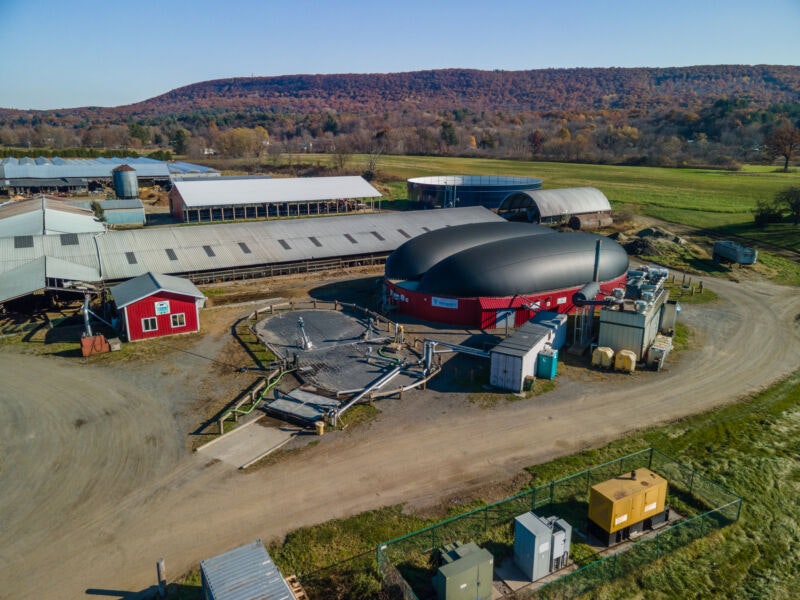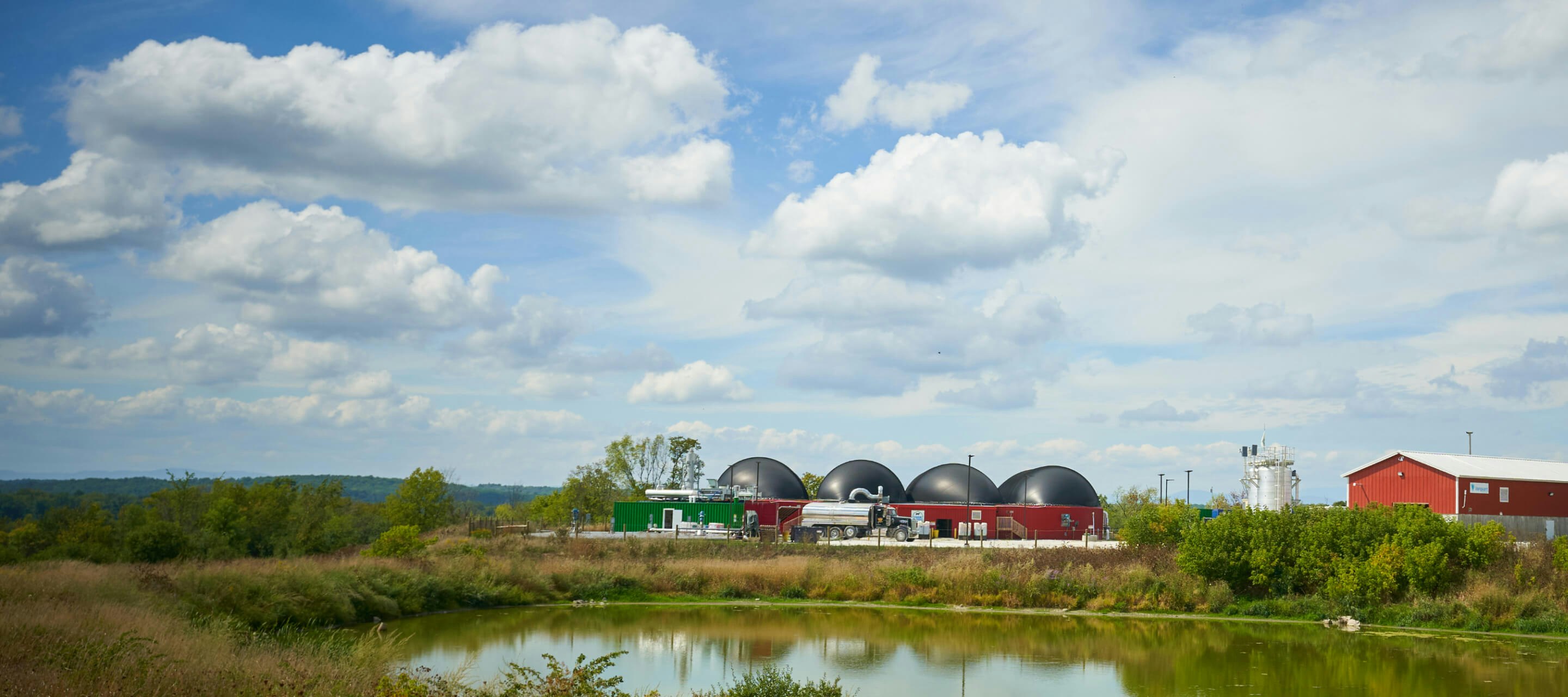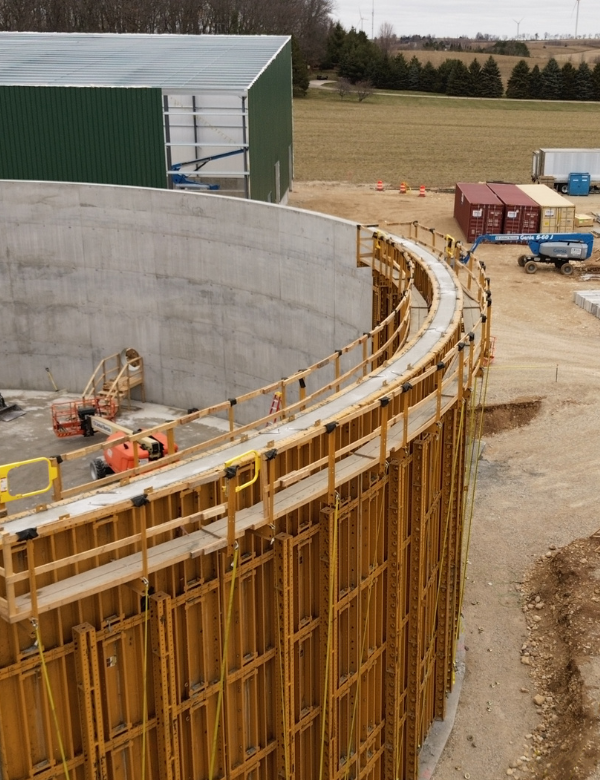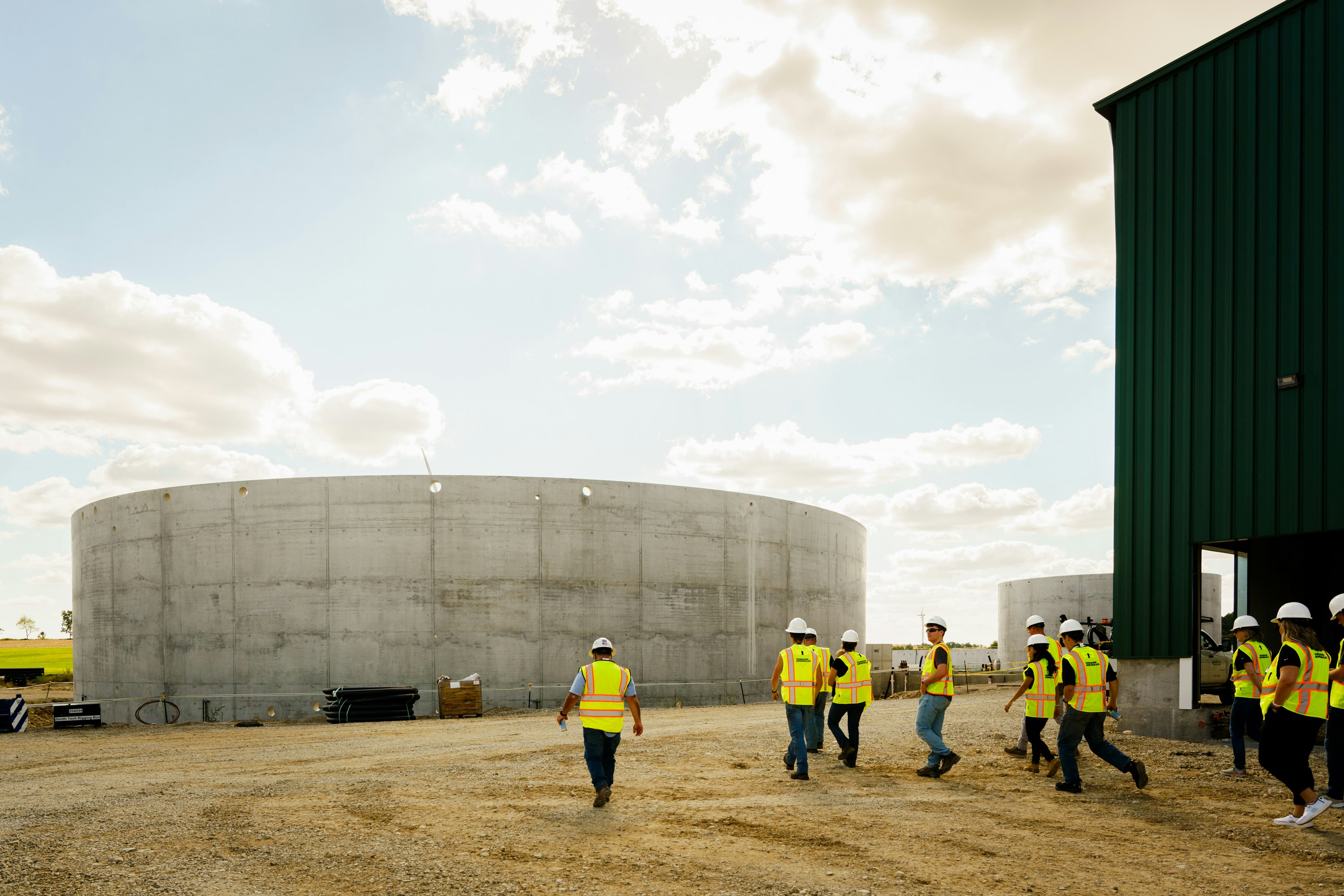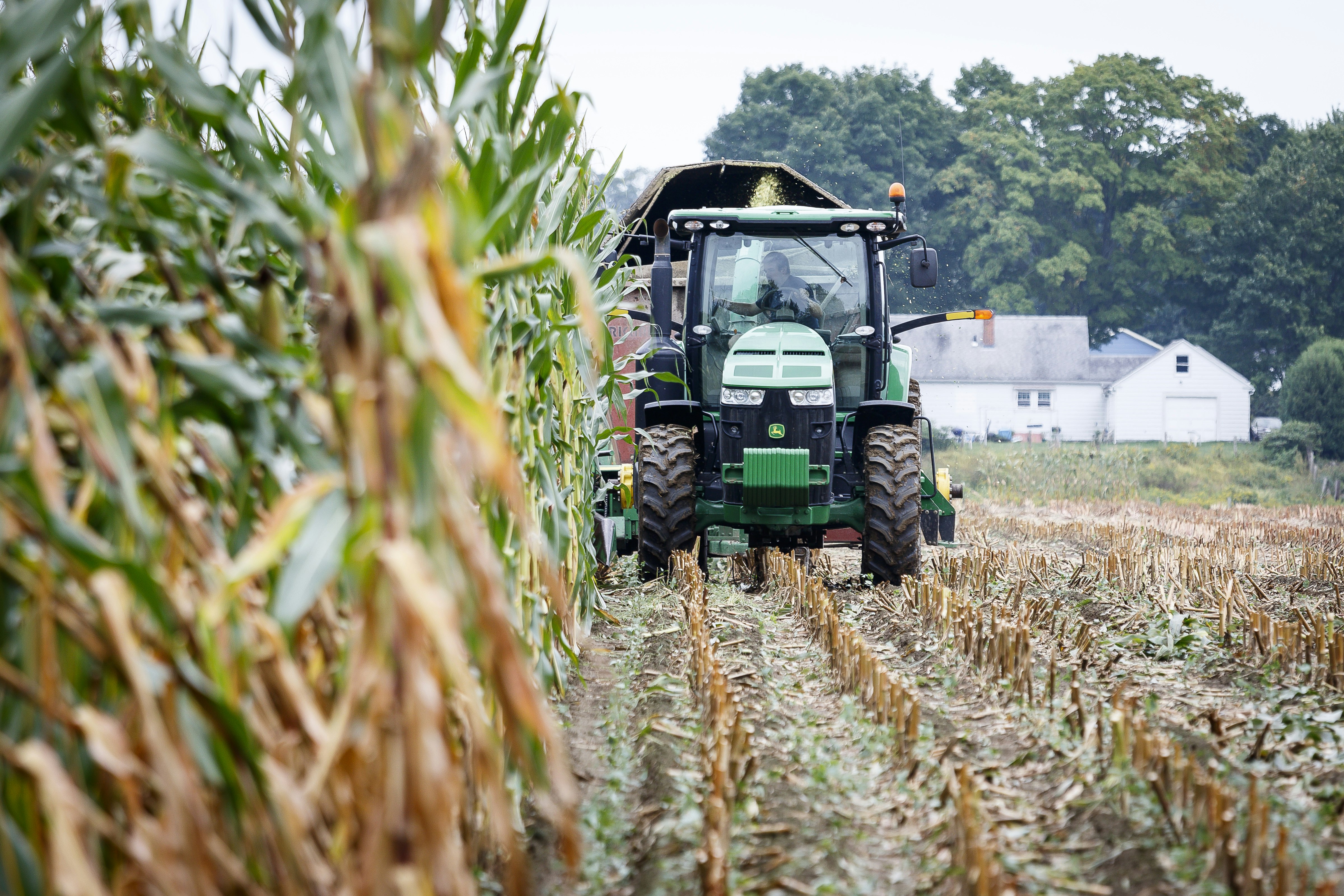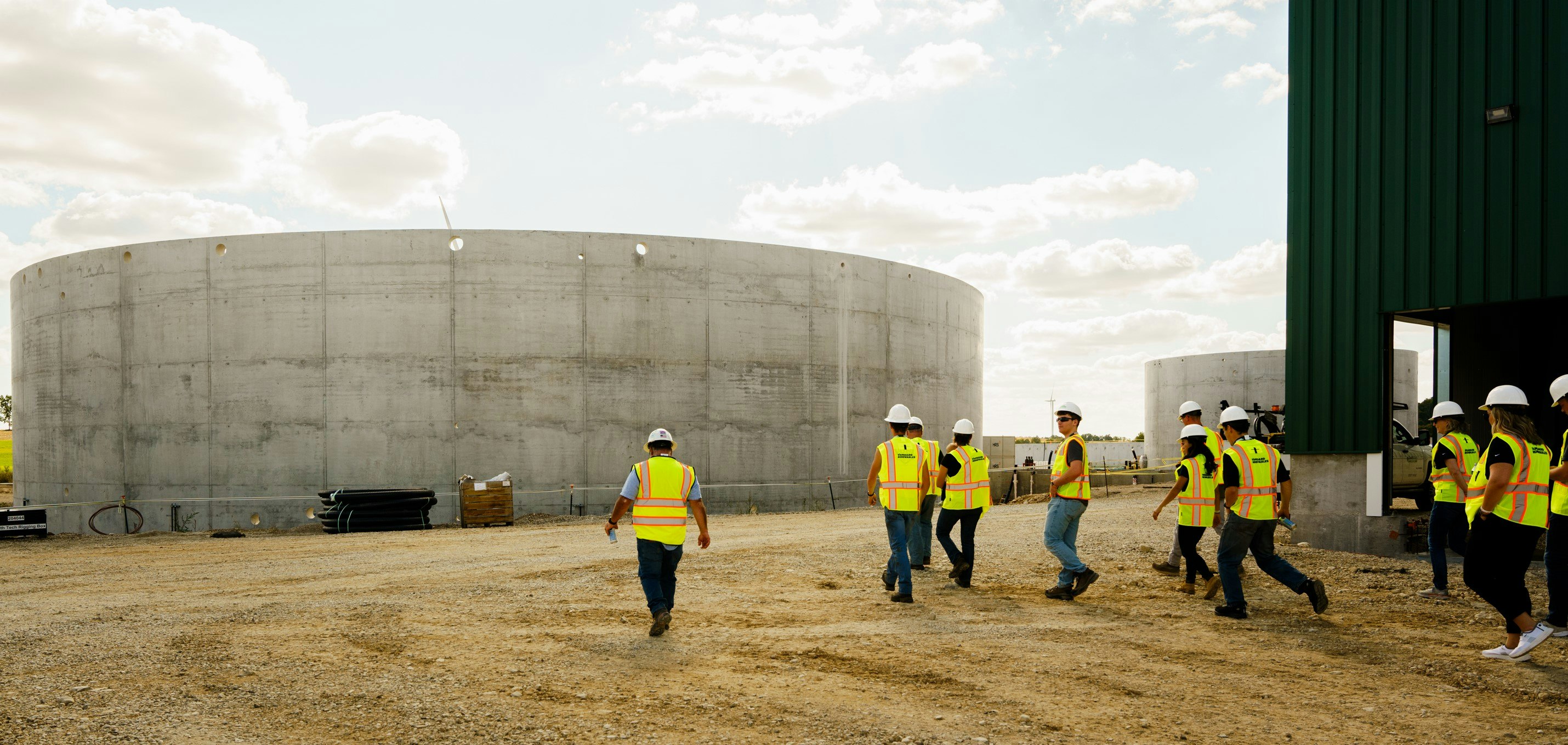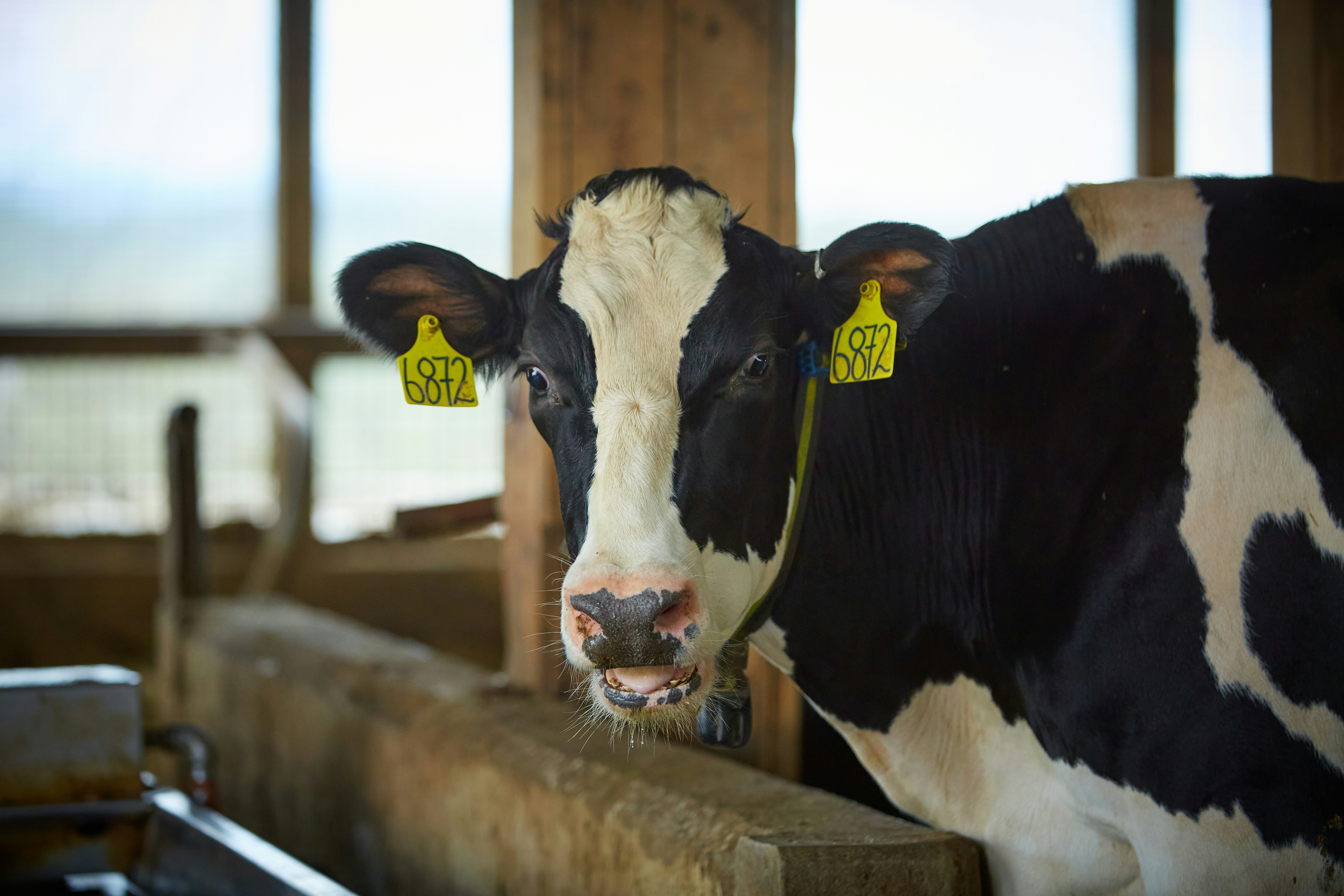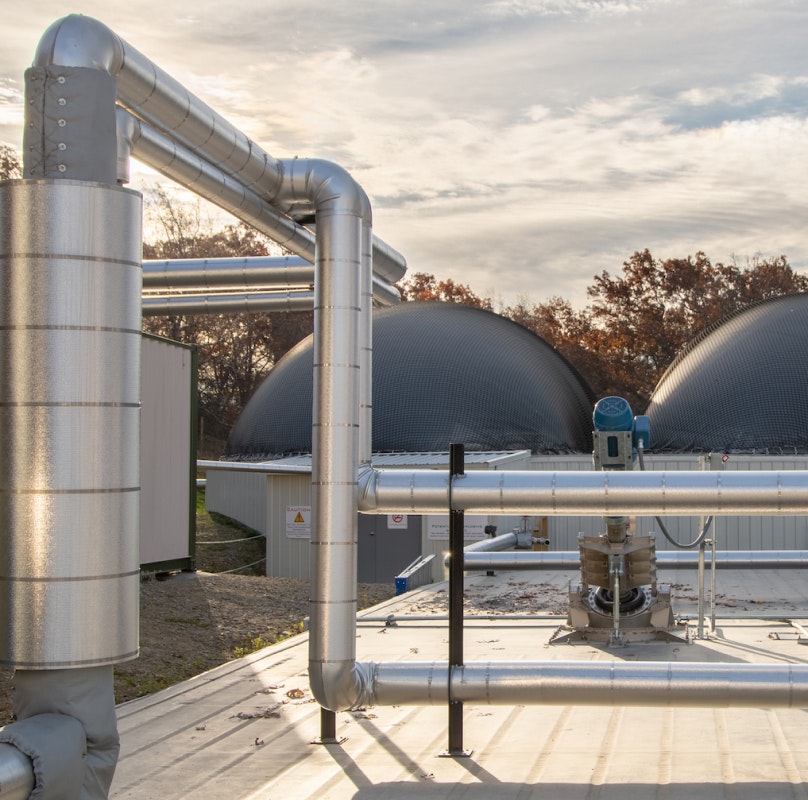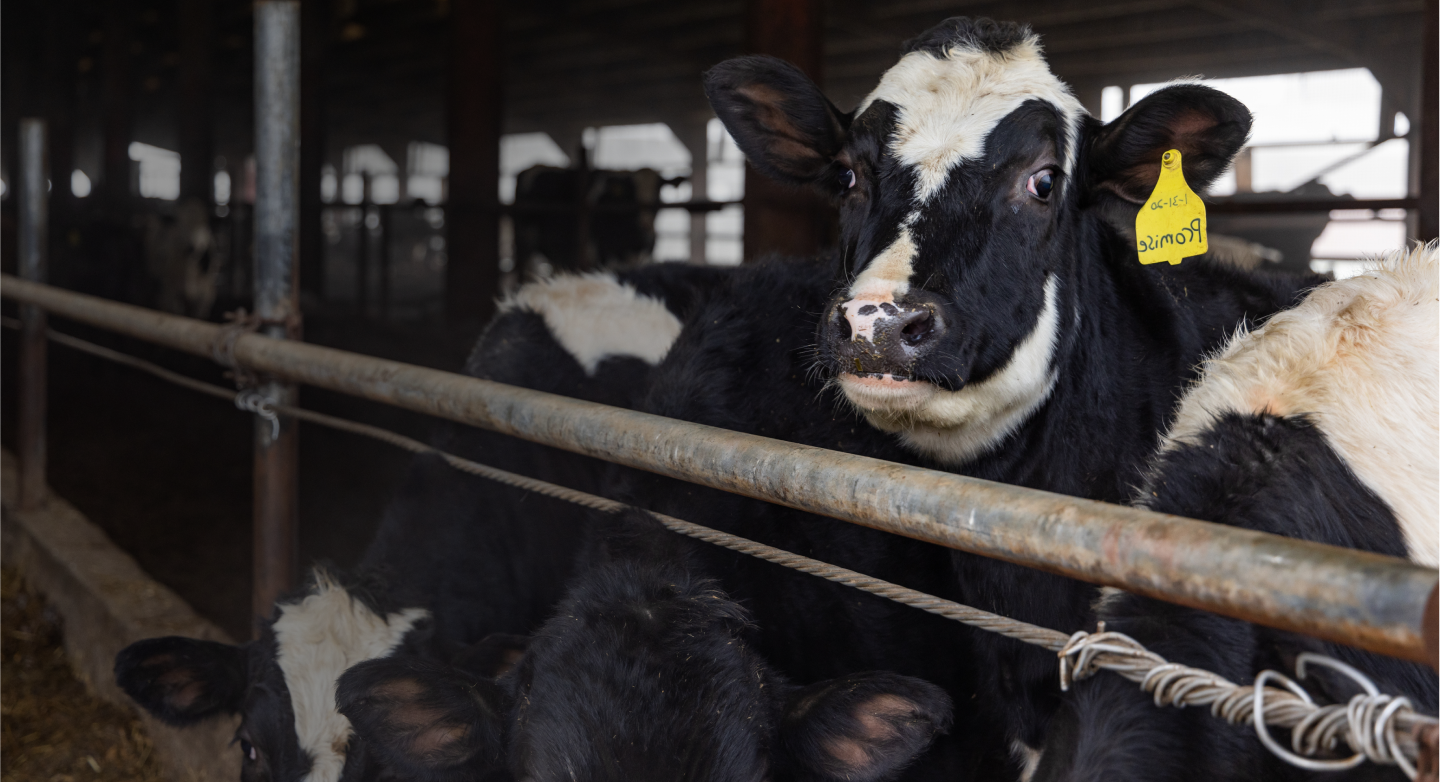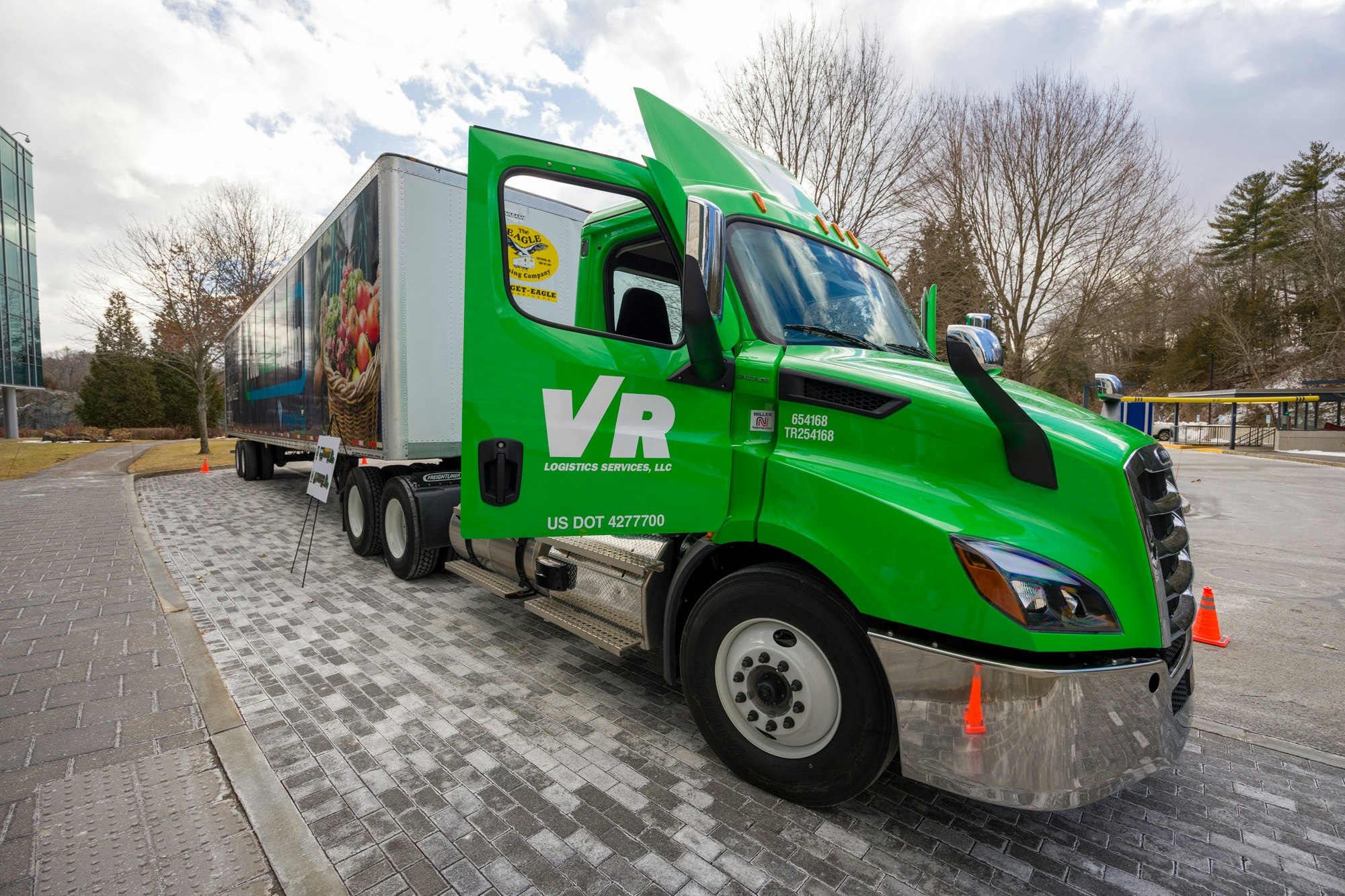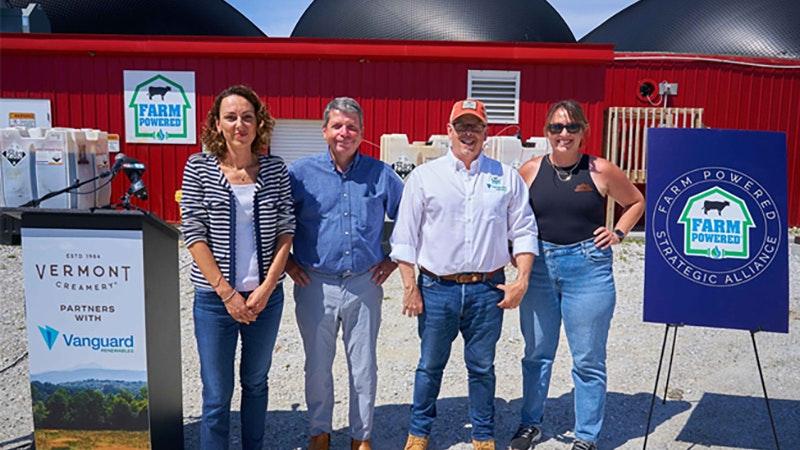All News
Vanguard Renewables Celebrates a Decade of Clean Energy Innovation
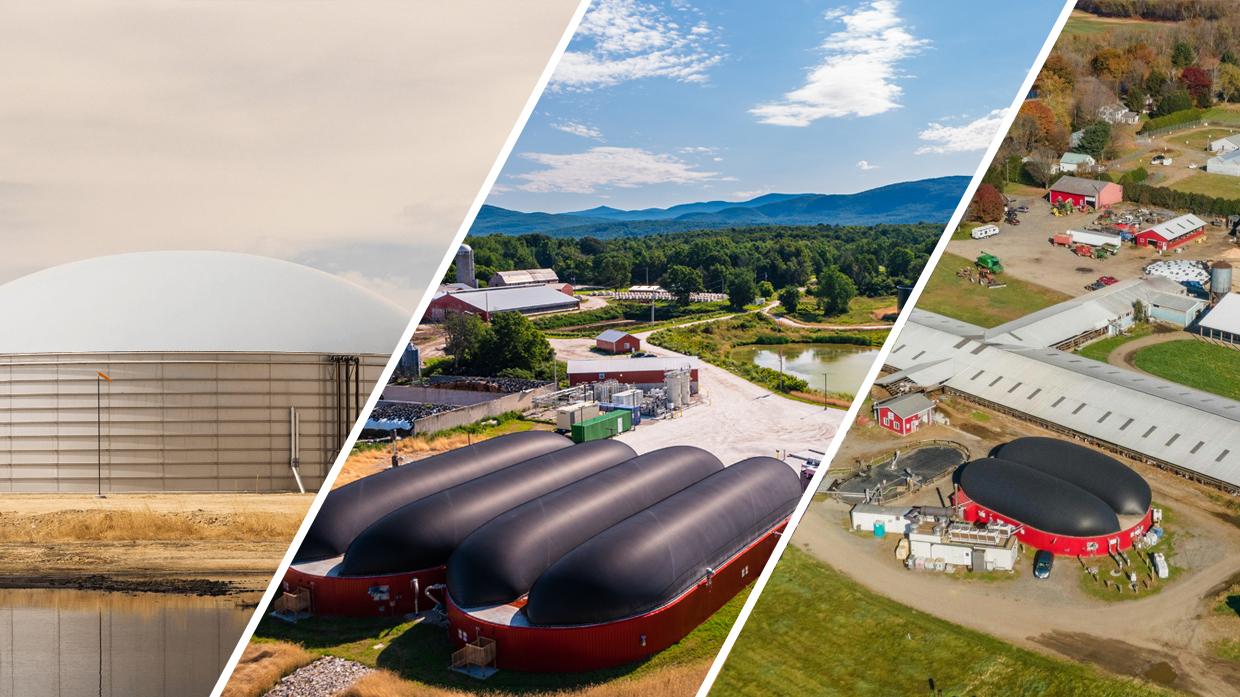
March 13, 2024
Boston, MA
Creating pathways for companies and institutions to responsibly recycle organics and to reach net zero carbon emission targets since 2014
BOSTON, MA — Vanguard Renewables®, a farm-based provider of organic material solutions for the food and beverage industry, is celebrating a decade in clean energy innovation and organic materials solutions. The Company has grown from two facilities under management in 2014 to 32 sites across the United States, with new projects commencing construction consistently over the next four years. Vanguard’s vision is to transform organic food and beverage materials into a force for good - decarbonizing the world, supporting regenerative agriculture, and powering the lives of all those that live on our planet.
Vanguard celebrates this 10-year milestone with an accelerated workforce and facility expansion. As part of its aggressive growth strategy, Vanguard Renewables is developing multiple Farm Powered® digesters across the country that will service almost every major metropolitan market. The Company currently operates multiple organics to renewable energy projects in eight states, is constructing sites in four states, has more than 10 projects slated for construction in 2024, and an additional 68 projects in various stages of planning development, and aims to have more than 100 completed projects by the end of 2028.
Currently the Company is operating facilities in Texas, Idaho, Colorado, Georgia, Massachusetts, Nevada, New Mexico, and Vermont. In 2024, they will add sites in these states and begin construction on several facilities in Pennsylvania, Ohio, Virginia, Wisconsin, Minnesota, Kansas, and Oklahoma.
In addition to Vanguard Renewables facility expansion, the Company has also expanded their food and beverage materials diversion services and their organics solutions team to now provide service throughout the contiguous United States. Vanguard is leading the way on renewable natural gas (RNG) projects, providing a drop-in replacement fuel for fossil natural gas and is making a significant impact on the renewable energy landscape.
The Company also opened its first organics recycling area in 2020 in Agawam, MA. The site takes palletized food and beverage materials and depackages the food waste and separates the organic materials (food waste) and packaging into two streams. Thus, providing a circular solution for food and beverage manufacturers and retailers to help them recycle its organic waste and packaging in a virtuous cycle. By providing this service to food and beverage companies it has lowered the barrier to recycling organic waste in a cost-effective way, and it is also beneficial to the environment.
Vanguard Renewables, along with Starbucks, Unilever, and Dairy Farmers of America launched the Farm Powered Strategic Alliance in 2020. The Alliance is a collaborative group of leading national and regional brands focused on advancing sustainability, food waste reduction and recycling, expand renewable energy production across the U.S., and support regenerative agriculture practices. The Alliance has grown to nearly 30 cross-industry members.
Vanguard’s anaerobic digestion facilities convert food and beverage waste material and dairy manure into RNG. The process helps reduce on-farm greenhouse gas emissions and supports the decarbonization efforts of food and beverage manufacturers by diverting their inedible food or beverage material from landfills or incineration to a Farm Powered digester on a multi-generational dairy farm.
In 2023, Vanguard announced a transformative renewable energy partnership with AstraZeneca, and to date, it is the largest open market RNG deal in the United States. The partnership will replace all of AstraZeneca’s fossil natural gas needs with Vanguard’s Farm Powered derived RNG. Currently, the Company is providing RNG to meet the thermal load at AstraZeneca’s Newark, DE site, with other sites coming online as the Company’s farm-based projects are completed.
Vanguard Renewables' strategic partnerships and groundbreaking Farm Powered Strategic Alliance will enable its partners to significantly reduce their carbon footprint from a change in organic materials practices and decarbonize their thermal load. By utilizing RNG produced from recycling organic materials, these companies can immediately replace fossil natural gas and make substantial progress towards their Scope 1 sustainability goals.
The biogas produced via the Company’s Farm Powered process is upgraded and injected into the nation’s existing pipeline gas infrastructure. RNG is a cost-competitive means of decarbonization (e.g. electrification, other renewables) that requires no incremental capital investment, and is an immediate drop in replacement fuel for fossil-derived natural gas, creating a decarbonization solution that can have immediate impacts. Currently, the Company is providing RNG to voluntary buyers like universities, pharmaceutical manufacturers, maritime fuel, and several national energy companies.
Vanguard is also working to develop meaningful partnerships to advance the technology and science behind successful anaerobic digestion. In November of 2023, AstraZeneca and Vanguard Renewables announced a technical partnership whereby AstraZeneca will leverage its global industrial-scale manufacturing and digital capabilities to boost U.S. RNG productivity. The partnership draws on AstraZeneca’s global manufacturing, supply chain, digital, and scientific expertise to work with Vanguard Renewables to increase RNG yield and generate a step change improvement in its production. The Companies believe that technological improvements and enhanced production can increase access and cost-effectiveness of renewable natural gas.
With a team of dedicated solutions providers, world-class scientists and engineers, strong leadership, and dedicated institutional partners Vanguard Renewables is well-positioned to drive the adoption of renewable energy solutions across the country for the next decade and beyond. By establishing anaerobic digesters in multiple states, the company is actively contributing to the transition to a cleaner, more sustainable future by providing the food and beverage industry with a solution that diverts organic waste from landfill or incineration protecting people and the planet for the future.
For more information about Vanguard Renewables, please visit www.vanguardrenewables.com.
Media Contact:
Billy Kepner
607-331-9806
[email protected]
About Anaerobic Digestion
Inedible or unsaleable food and beverage waste from the manufacturing and retail sectors is collected, sorted, depackaged on-site, and combined with dairy farm manure in a sealed biodigester tank. Once combined in the biodigester, microorganisms that naturally occur in manure digest the waste, converting sugars, fats and other compounds into biogas. Harnessing the waste’s energy captures as much as 95 percent of the potential greenhouse gas emissions that would result if food and beverage waste were sent to a landfill or if the farm manure were field applied. The process produces RNG that is upgraded to pipeline-quality gas and injected into the existing pipeline infrastructure on-site, displacing traditional fossil fuels. The biogas is then used for heating and cooling or can be used to make Compressed Natural Gas (CNG) for vehicles. The by-products of the anaerobic digestion process include a low-carbon and nutrient dense fertilizer (digestate) that reduces the farm’s dependency on chemical fertilizers, and a dry by-product which is used for animal bedding. When food and beverage manufacturers send their organic waste to a Farm Powered site and purchase the RNG created by their waste to power their plants, they are creating a closed-loop solution that helps to address Scope 1 and 3 emissions in their business practices.
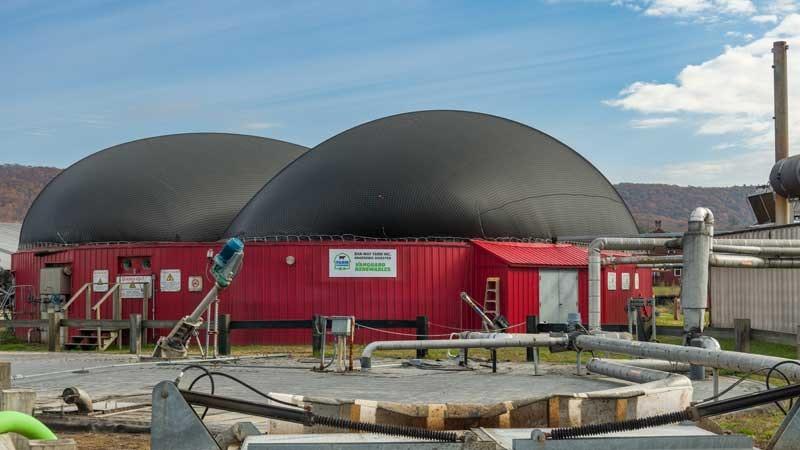
About Vanguard Renewables
